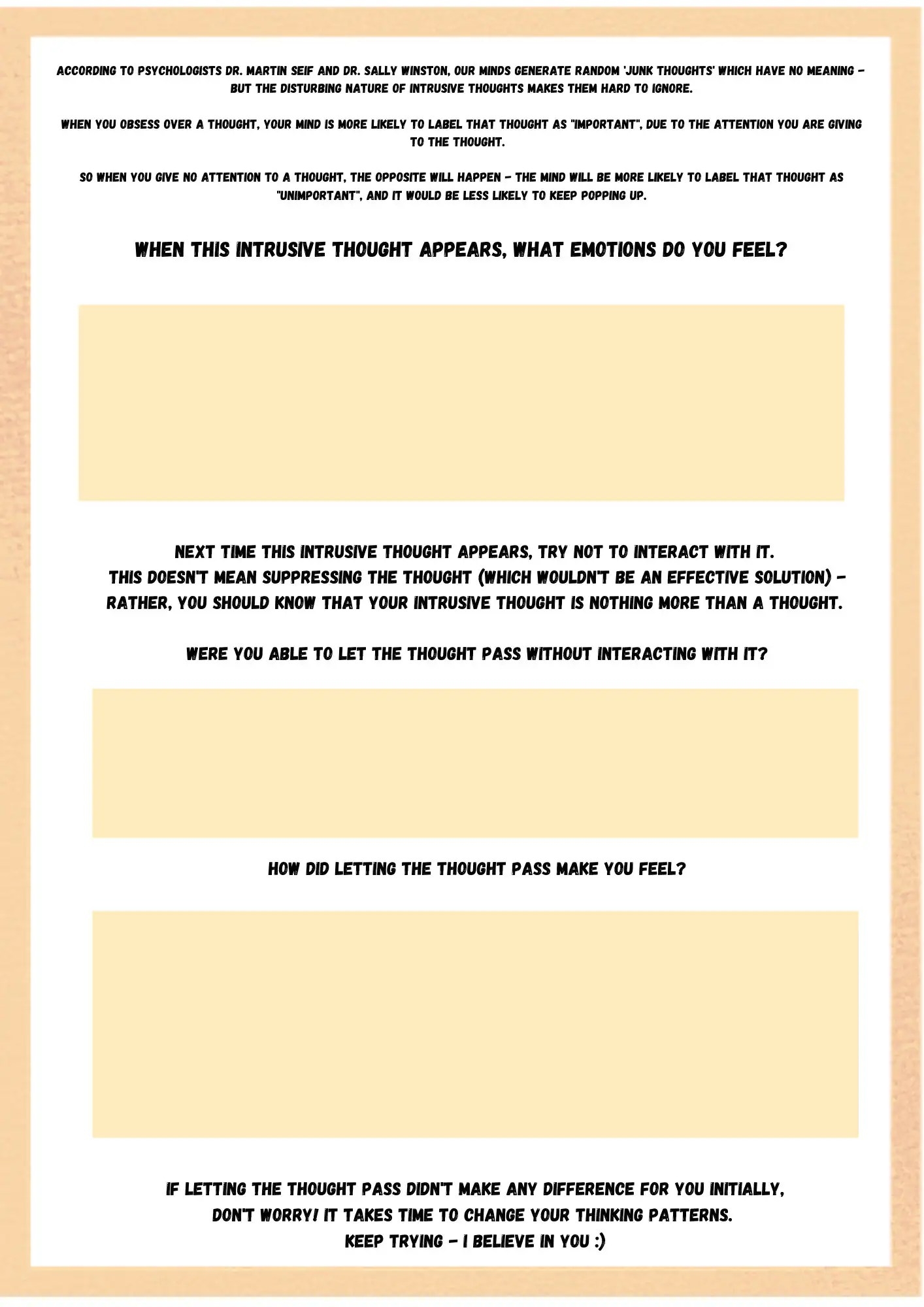Obsessive-Compulsive Disorder (OCD) is a mental health condition characterized by persistent, unwanted thoughts (obsessions) and repetitive behaviors (compulsions). Cognitive Behavioral Therapy (CBT) is a widely recognized and effective treatment for OCD. CBT for OCD often involves the use of worksheets to help individuals challenge their negative thought patterns and change their behaviors.
CBT for OCD worksheets are tools used by therapists to guide individuals through the process of identifying, challenging, and changing their obsessive thoughts and compulsive behaviors. These worksheets can be completed during therapy sessions or as homework assignments between sessions to reinforce learning and practice new coping skills.
One common type of worksheet used in CBT for OCD is the “Thought Record.” This worksheet helps individuals track their obsessions and compulsions, identify the underlying beliefs driving these thoughts and behaviors, and challenge the accuracy and validity of these beliefs. By completing a thought record, individuals can begin to see patterns in their thinking and behavior and develop more adaptive responses.
Another type of worksheet that may be used in CBT for OCD is the “Exposure Hierarchy.” This worksheet helps individuals create a list of situations or triggers that provoke their OCD symptoms, rank these triggers from least to most anxiety-provoking, and gradually expose themselves to these triggers in a controlled and systematic way. Through repeated exposure, individuals can learn to tolerate their anxiety and reduce the need to engage in compulsive behaviors.
In addition to thought records and exposure hierarchies, CBT for OCD worksheets may also include tools for developing coping strategies, setting goals for treatment, and monitoring progress over time. These worksheets provide a structured and systematic approach to treatment, helping individuals break the cycle of obsessions and compulsions and regain control over their lives.
In conclusion, CBT for OCD worksheets are valuable tools in the treatment of Obsessive-Compulsive Disorder. By using these worksheets, individuals can challenge their negative thought patterns, confront their fears, and develop more adaptive coping strategies. If you or someone you know is struggling with OCD, consider seeking out a therapist who specializes in CBT for OCD to learn more about how worksheets can support your treatment.
